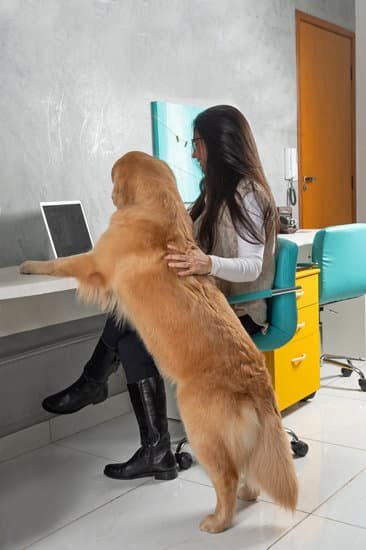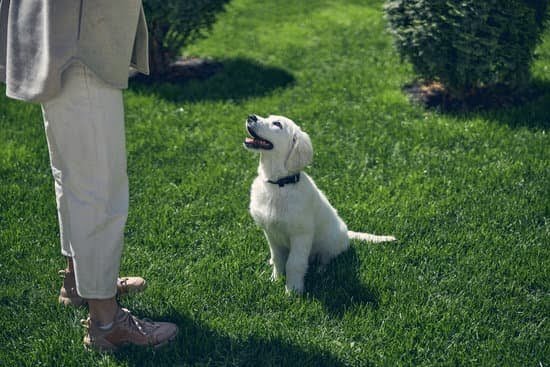For many dog owners, potty training is one of the first and most important tasks to tackle. It’s a necessary step in ensuring that your furry friend can live comfortably and harmoniously within your home. However, even after successfully training a dog to use the designated bathroom area, there are instances when they may suddenly forget their training.
This can be frustrating for both the dog and their owner. In this article, we will explore the various reasons why a dog may forget their potty training and how to address this issue effectively.
Consistent potty training is crucial for dogs to maintain good bathroom habits throughout their lives. Just like humans, dogs need structure and routine to develop and retain specific behaviors. The process of teaching a dog where they should eliminate requires time, patience, and a clear understanding of how dogs learn.
Understanding the basics of canine learning is essential in addressing potty training regression. Dogs rely on forming associations between actions and consequences through repeated experiences. When these associations are consistently reinforced through rewards and positive reinforcement, dogs are more likely to retain the desired behavior. However, various factors can lead to setbacks in a dog’s potty training progress, causing them to forget what they have learned.
In the following sections, we will delve into these factors in greater detail to provide pet owners with insight into why their dogs may experience regression in potty training. By identifying the potential causes behind this behavior, it becomes easier to develop effective strategies for overcoming setbacks and maintaining successful potty training habits for your furry companion.
Understanding the Basics
Dogs are intelligent animals capable of learning and retaining habits, but understanding how they learn is essential in maintaining potty training success. Dogs rely on positive reinforcement and association to form habits and behaviors. They learn through repetition, consistency, and reinforcement, which helps create strong neural pathways in their brains.
One fundamental concept in dog training is the idea of associating a specific behavior with a consequence. This concept is known as classical conditioning. For example, when a dog consistently eliminates outside and receives praise and treats as rewards, they will associate going outside with positive experiences. Over time, this association becomes imprinted in their minds, making it more likely for them to repeat the desired behavior.
In addition to classical conditioning, operant conditioning also plays a role in teaching dogs new habits. Operant conditioning involves reinforcing desired behaviors through positive reinforcement or discouraging unwanted behaviors through negative reinforcement or punishment. In the case of potty training, positive reinforcement such as praise or treats can be used to reward a dog for eliminating in the appropriate place.
To successfully potty train a dog, it is crucial to establish clarity and consistency. Dogs thrive with routines and clear expectations from their owners. Having set times for meals, walks, and toilet breaks helps them understand when it’s time to eliminate and reduces the chances of accidents indoors.
Moreover, it’s important for owners to reinforce good behavior consistently throughout the training process. Creating a positive association between eliminating outdoors and rewards will reinforce the desired habit in the dog’s mind.
Understanding how dogs learn and retain habits is key to effective potty training. By utilizing principles of classical conditioning and operant conditioning, owners can establish clear expectations for their dogs while using positive reinforcement techniques actively. With patience, consistency, and proper training techniques in place, dogs can become fully potty trained and maintain good habits for life.
Physical Issues
Potty training a dog requires consistency, patience, and understanding. However, there are times when a previously successfully potty trained dog may begin to forget their training. One possible reason for this regression is the presence of physical issues that affect their ability to control their bladder or bowel movements.
Firstly, it is crucial to identify any underlying medical conditions that might be causing a dog to forget their potty training. Urinary tract infections (UTIs) and gastrointestinal problems such as diarrhea or constipation can all contribute to accidents in the house. These conditions can cause dogs discomfort or pain, leading to them being unable to hold it in or having difficulty signaling their need to go outside.
In order to address physical issues affecting toilet training, it is important for pet owners to closely monitor their dog’s health and behavior. Regular visits to the veterinarian can help identify any potential health problems early on. Additionally, owners should keep an eye out for signs such as frequent accidents, changes in urinary habits (e.g., increased frequency or straining), blood in urine or stool, excessive licking of genital areas, or signs of discomfort during elimination.
| Physical Issue | Symptoms |
|---|---|
| Urinary tract infection (UTI) | Frequent urination, straining during urination, blood in urine |
| Gastrointestinal problems | Diarrhea or constipation, changes in stool consistency/color |
| Painful joint or muscle condition | Limping, difficulty squatting, reluctance to move or climb stairs |
| Incontinence | Accidental urination or defecation while resting or sleeping |
Addressing physical issues that may affect a dog’s toilet training involves seeking appropriate veterinary care and treatment. Once any underlying health problems have been resolved or managed, it is important to reinforce the potty training routine, providing ample opportunities for the dog to go outside and using positive reinforcement to reward desired behaviors.
By identifying and addressing physical issues that may affect a dog’s ability to control their bladder or bowel movements, pet owners can help their furry companions regain their potty training skills and prevent further regression. It is essential to remember that patience, consistency, and understanding are key when dealing with setbacks in potty training progress.
Environmental Factors
One of the main reasons why a dog may forget their potty training is due to changes in their routine and surroundings. Dogs are creatures of habit, so any disruptions to their usual schedule or environment can have an impact on their ability to remember and follow their potty training.
One common environmental factor that can affect a dog’s potty training is a change in living arrangements. Moving to a new house or apartment can be stressful for dogs, as they have to adjust to a new space and potentially different bathroom areas. It is important for owners to help their dogs adapt by gradually introducing them to the new surroundings and providing consistent guidance during this transition period.
Another factor that can impact a dog’s potty training is changes in the household routine. For example, if there are sudden changes in the owner’s work schedule or if there are new family members or pets added to the household, it can disrupt the dog’s established routine and cause them to forget their training.
In such cases, it is crucial for owners to re-establish a consistent routine as soon as possible and provide clear signals and cues for the dog’s bathroom breaks.
To address these environmental factors and maintain a dog’s potty training success, it is important for owners to be proactive in managing any changes that could potentially impact their dogs’ routines and surroundings. This includes gradually introducing dogs to new environments, maintaining consistency in daily routines, providing clear communication and reinforcement during toilet breaks, and monitoring any signs of stress or anxiety that could contribute to regression in potty training.
| Environmental Factors | Impact on Potty Training |
|---|---|
| Changes in living arrangements | Dog may struggle to adjust to new bathroom areas |
| Changes in household routine | Dog’s established routine is disrupted, leading to regression in potty training |
| Lack of consistency during transitions | Dog may become confused and forget their potty training due to inconsistent guidance |
| Failure to address signs of stress or anxiety | Dog’s emotional well-being can impact their ability to remember and follow potty training cues |
Emotional Triggers
When it comes to potty training, there are various factors that can contribute to a dog forgetting their training. One important factor to consider is the emotional state of the dog. Dogs are highly sensitive animals and changes in their emotions can have a significant impact on their behavior, including their ability to remember their potty training.
Stress, anxiety, and fear are common emotional triggers that can cause a dog to regress in their potty training. Just like humans, dogs experience these emotions when they encounter certain situations or stimuli that they find overwhelming or threatening. For example, moving to a new home, the addition of a new pet or family member, loud noises such as fireworks or thunderstorms, or even changes in their daily routine can all trigger stress and anxiety in dogs.
When a dog is stressed or anxious, it can affect their ability to focus and retain information. This means that even if they were previously fully potty trained, they may start having accidents indoors again. Similarly, fear can cause a dog to become too afraid to go outside to relieve themselves or to associate certain areas with negative experiences.
In order to address this issue and help a dog overcome regression caused by emotional triggers, it is important for owners to first identify what specific situations or stimuli are causing stress, anxiety, or fear for their dog. Once identified, steps can be taken to desensitize the dog to these triggers through gradual exposure and positive reinforcement.
Creating a calm and safe environment for the dog and providing them with plenty of mental stimulation and exercise can also help reduce overall stress levels.
It is worth noting that every dog is unique in terms of what triggers their stress, anxiety, or fear. Therefore, it may be necessary for owners to work closely with a professional dog trainer or behaviorist who specializes in working with anxious dogs. These professionals can provide guidance and customized strategies to help address the specific emotional triggers and facilitate the dog’s potty training progress.
Overall, understanding and addressing emotional triggers is essential in helping a dog maintain their potty training. By providing a supportive environment, using positive reinforcement techniques, and seeking professional help if needed, owners can help their dogs overcome regression caused by stress, anxiety, and fear.
| Emotional Triggers | Effects on Potty Training |
|---|---|
| Stress | Affects focus and retention of potty training information |
| Anxiety | Makes it difficult for the dog to associate certain areas with going outside to relieve themselves |
| Fear | Can lead to avoidance of going outside or association of negative experiences with specific areas |
Reinforcement and Rewards
The Power of Positive Reinforcement
One of the key factors in maintaining potty training success for dogs is the use of positive reinforcement. Positive reinforcement involves rewarding a dog’s desired behavior, in this case, using the designated potty area or signaling when they need to go outside. When a dog is consistently rewarded for using the correct spot, they are more likely to remember and continue this behavior.
Rewarding a dog can take various forms, such as verbal praise, treats, or even playtime with their favorite toy. It is important to find what motivates your specific dog and use that as a reward consistently. The timing of the reward is crucial as well – it should be given immediately after your dog completes their desired behavior, so they can properly associate the action with the reward.
Consistency in Training
To reinforce potty training success, it is crucial to maintain consistency in both rewards and expectations. Consistency means using the same commands or signals when indicating that it’s time to go outside and being diligent about rewarding good behavior each time. By doing so, you will help solidify the connection between going potty in the right place and receiving positive reinforcement.
A consistent routine should also be established for feeding times and bathroom breaks. Dogs thrive on routine and knowing what to expect helps them develop good habits more effectively. By feeding your dog at regular intervals and taking them out for bathroom breaks at consistent times throughout the day, you can reduce confusion and increase success in their potty training journey.
The Role of Patience
When reinforcing potty training with positive rewards, it’s essential to exercise patience. Remember that accidents may happen occasionally, especially during the initial stages of training or when your dog is experiencing changes in routine or environment. Reacting harshly or punishing your dog for accidents can lead to fear or anxiety around potty training activities.
Instead, stay calm and redirect your dog to the correct spot if you catch them in the act of going potty in an undesirable location. Clean any accidents thoroughly using an enzymatic cleaner to eliminate any lingering scent that may attract your dog back to that spot. Rely on positive reinforcement and patience to build a positive association with using the designated potty area.
By consistently reinforcing good behavior with rewards, maintaining a consistent training routine, and being patient during setbacks, you can play an active role in helping your dog remember their potty training for good. Positive reinforcement not only helps dogs remember where they should go but also strengthens the bond between you and your furry friend.
Age and Developmental Stages
Cognitive Development
One factor that can contribute to a dog forgetting their potty training is their cognitive development. Just like humans, dogs undergo different stages of mental development as they grow. During these stages, their ability to understand and retain information can vary.
For example, puppies are known for having shorter attention spans and being easily distracted, which can make it more challenging for them to remember their potty training. As they mature and their cognitive abilities improve, they become better able to remember and follow the rules of potty training.
Physical Changes
Alongside cognitive development, physical changes in a dog’s body can also impact their potty training. For instance, young puppies have smaller bladders and less muscle control compared to adult dogs. This means they have a limited ability to hold their urine or stool for extended periods.
As they develop and grow physically, their bladder capacity increases, allowing them to hold it longer. Additionally, hormonal changes during adolescence can affect a dog’s urinary habits, leading to temporary lapses in potty training.
Transitioning Stages
Dogs go through various transitioning stages throughout their lives, such as moving from one living environment to another or adjusting to major life changes within the household. These transitions can disrupt a dog’s normal routine and impact their potty training progress. For example, if a family moves houses or gets a new member (human or animal) who disrupts the established routine, it may create confusion for the dog and result in accidents inside the house.
Importantly, understanding these age-related developmental stages and recognizing how they can influence toilet training allows dog owners to tailor their approach accordingly. It is crucial to be patient with younger dogs who haven’t fully developed physically or cognitively yet while ensuring consistency with older dogs who may experience regression due to various life changes or health conditions. By adapting the potty training strategies accordingly, dog owners can help their furry friends maintain good bathroom habits throughout their lives.
Lack of Structure and Consistency
Creating a Schedule
One of the primary reasons why dogs may forget potty training is a lack of structure and consistency in their routine. Dogs thrive on predictability, and having a clear schedule for when they eat, sleep, play, and go outside to relieve themselves can greatly aid in their potty training success. Without a consistent routine, dogs may become confused about when and where they are supposed to go.
To establish a potty training routine, pet owners should determine the optimal times for their dog to eliminate by observing their behavior after meals or periods of play. These are known as “key times” when a dog is more likely to need to go outside. By taking them out during these key times consistently, owners can reinforce the desired behavior and help their dog remember where they should eliminate.
Implementing Clear Guidelines
Consistency is also crucial when it comes to the rules and expectations surrounding potty training. Owners should establish clear guidelines for where their dog should eliminate, such as designating a specific spot in the yard or using puppy pads indoors. By consistently reinforcing this designated area every time the dog needs to go, they will learn that this is the appropriate place.
Additionally, it is important for everyone involved in caring for the dog to be aware of and follow the same potty training rules. Inconsistencies between family members or caregivers can confuse the dog and impede progress. Educating everyone on the established routine and guidelines will help ensure that there is no confusion or mixed signals.
Maintaining Patience & Persistence
Establishing and maintaining a potty training routine requires patience and persistence from pet owners. It may take several weeks or even months for a dog to fully grasp the concept and reliably remember where they should eliminate. During this time, accidents may occur, and it is important to remain calm and avoid scolding or punishing the dog as it can cause anxiety and hinder progress.
Consistency is key in reinforcing the desired behavior, so pet owners should continue to follow the established routine even if setbacks occur. It is essential to remember that each dog learns at their own pace, and with consistent training, patience, and positivity, they will eventually grasp the concept of potty training and remember it for good.
Regression and Setbacks
Regression and setbacks in potty training progress are not uncommon for dogs. It is important for dog owners to recognize these challenges and have strategies in place to overcome them. Understanding the potential causes of regression can help address the issue effectively and prevent it from becoming a long-term problem.
One common cause of regression in potty training is a change in routine or surroundings. Dogs thrive on consistency and any disruption to their established routine can affect their ability to remember their training.
Moving to a new home, having new people or pets around, or even changes in work schedules can all contribute to a dog forgetting their potty training. In such cases, it is important for dog owners to reestablish a consistent schedule and provide additional supervision and guidance during this transition period.
Stress, anxiety, and fear can also play a role in causing a dog’s regression in potty training. Dogs are sensitive creatures and they may associate certain environments or situations with negative emotions, leading them to avoid eliminating in those places.
For example, if a dog had an accident inside during a thunderstorm and became scared, they might develop an aversion to going outside during storms altogether. In such cases, it is essential for the owner to address the underlying emotional triggers by creating positive associations through counter-conditioning techniques, gradually desensitizing the dog to those triggers.
Another factor that can contribute to regression is lack of structure and consistency in the potty training routine. Dogs need clear expectations and boundaries when it comes to bathroom behavior.
If there are inconsistencies in how they are managed, such as being allowed on different surfaces (like grass versus carpet) or receiving inconsistent rewards or consequences for accidents, they may become confused about where and when they should eliminate. Establishing a structured routine that includes regular designated potty breaks, as well as consistent reinforcement and rewards for appropriate elimination behavior, can help reinforce the desired habit.
Seeking Professional Help
Seeking professional help in the form of a dog trainer or behaviorist can be a valuable resource for pet owners who are struggling with their dog’s potty training. While many people are able to successfully train their dogs on their own, there are certain situations where expert guidance may be necessary. This section will discuss when it is appropriate to consider consulting a professional and highlight the benefits they can provide.
- Complex or Persistent Issues: If your dog is experiencing ongoing difficulties with potty training despite consistent efforts, it may be time to reach out to a professional. They have the knowledge and experience to assess the situation and determine if there are any underlying factors contributing to the problem.
Whether it’s a behavioral issue or a medical condition, a dog trainer or behaviorist can help identify the cause and develop an individualized plan to address it. - Regression or Setbacks: Sometimes, even dogs that were previously fully potty trained may experience setbacks or regressions in their training. This can be frustrating for owners who have already put in significant time and effort into training their pets. A professional can offer guidance on how to overcome these challenges and get back on track with potty training.
- Specific Training Techniques: Professional trainers often specialize in different types of training methods, including those specifically designed for potty training. If you have tried various techniques without success, consulting an expert can open up new possibilities through tailored strategies that suit your dog’s individual needs.
- Behavior Modification: In some cases, potty training issues may be linked to underlying behavioral problems such as anxiety or fear. A behaviorist can work with both you and your pet to identify triggers and develop strategies for managing these issues effectively.
When considering consulting a dog trainer or behaviorist, it’s important to do thorough research and choose someone reputable who aligns with your specific needs and goals. Utilizing their expertise can provide valuable insights and ensure that you’re taking the necessary steps to help your dog remember their potty training for good.
Conclusion
In conclusion, it is essential to remember that potty training requires patience, consistency, and understanding. By applying the tips and strategies mentioned throughout this article, you can help your dog remember their potty training for good.
Firstly, make sure to address any physical issues that may be affecting your dog’s ability to hold their bladder or bowels. Consult with a veterinarian if you suspect any health problems and follow their advice for treatment or management.
Secondly, pay attention to environmental factors that may disrupt your dog’s routine or surroundings. Stick to a consistent schedule for feeding, walks, and bathroom breaks. Minimize changes in the environment as much as possible to avoid causing stress or anxiety.
Thirdly, consider the emotional well-being of your dog. Stress, anxiety, and fear can all contribute to regression in potty training. Create a calm and positive environment for your furry friend by providing plenty of exercise, mental stimulation, and reassurance.
Remember to use positive reinforcement consistently throughout the training process. Reward your dog with praise, treats, or playtime when they exhibit appropriate bathroom behavior. This will help reinforce the desired habits and make them more likely to remember their training.
Lastly, establish structure and consistency in your potty training routine. Set clear expectations for your dog’s behavior and stick to them consistently. Whether it is crate training or using specific commands, a structured approach will help reinforce good habits and prevent regression.
If despite your best efforts you continue facing challenges with potty training your dog, do not hesitate to seek professional help from a qualified dog trainer or behaviorist. They can provide expert guidance tailored to your individual situation and offer additional strategies for success.
Frequently Asked Questions
Is it normal for dogs to regress in potty training?
It is not uncommon for dogs to regress in potty training, especially during certain stages of their development or when there are changes in their routine or environment. Regression in potty training can occur due to various factors such as stress, illness, fear, or even marking territory.
Additionally, some dog breeds may take longer to fully grasp and consistently adhere to potty training rules. Patience and consistency are key when dealing with regression, as it usually requires going back to the basics of potty training and reinforcing positive behaviors.
Why is my dog getting un potty trained?
There could be several reasons why a dog is becoming un potty trained. One common reason is a lack of consistency in enforcing potty training rules by the owner or primary caregiver. Dogs thrive on routine and structure, so any inconsistency in the training process can confuse them and lead to accidents inside the house.
Another reason could be a medical issue such as urinary tract infection or gastrointestinal problems that cause increased urgency or inability to control elimination. It is essential to rule out any underlying health issues if a dog suddenly starts having accidents again after being previously potty trained.
Is it possible to forget potty training?
While it is possible for dogs to forget specific aspects of their potty training, it is more accurate to say that they may need reminders and reinforcement from time to time. Dogs have excellent long-term memories when it comes to learning routines and behaviors, but they can become rusty if not consistently reinforced over an extended period.
For example, if a dog is primarily trained to go outside for bathroom breaks but has been regularly using pee pads indoors for an extended period due to unavoidable circumstances, they may need some retraining and reminding about the original outdoor routine once it becomes available again. With patience and proper reinforcement of the desired behavior, dogs can quickly recall their potty training skills.

Welcome to the blog! I am a professional dog trainer and have been working with dogs for many years. In this blog, I will be discussing various topics related to dog training, including tips, tricks, and advice. I hope you find this information helpful and informative. Thanks for reading!





